United Nations SDGs
Sustainable Development Goals
SDG 1
No Poverty
Economic benefits and green economy
Urban forests support local green economies by creating jobs, serving as a resource for business owners, lowering the cost of urban infrastructure, providing ecological services to all residents, enhancing the quality of life, and raising property prices.
The Ezhil Vanam Foundation intends to work in tandem with regional authorities and farmers to advance agroforestry as a green economic strategy.

SDG 2
Zero Hunger
Food and nutrition security, water and watersheds, wood security, economic benefits and green economy.
Food for urban wildlife can be found directly in urban forests in the form of fruits, seeds, leaves, mushrooms, berries, bark extracts, saps and roots, and herbs. By supplying economical wood fuel, top-notch water, and improved soil for long-term agricultural development, they indirectly support healthy eating.
The ‘Trees that Feed’ initiative of the Ezhil Vanam Foundation aims to provide communities with fruit-bearing trees and plants.

SDG 3
Good Health and Well-Being
Human health and well-being
In and around cities, forests and other green spaces offer perfect locations for a variety of outdoor leisure and relaxation activities, which helps to prevent and treat non-communicable diseases and maintain mental health. The effective filtering and removal of pollutants and particles by urban trees also contributes to a decrease in the prevalence of non-communicable diseases.
The Ezhil Vanam Foundation intends to create a sustainable living environment in and around cities through green waiting areas, green charging zones, green avenues, and green urban forests.

SDG 4
Quality Education
Progress towards quality education
Progress toward quality education was already slower than needed prior to the pandemic, but COVID-19 has had disastrous effects on education, causing learning losses in four of the five nations evaluated. Without additional steps, an estimated 84 million children and young people will be out of school by 2030, with over 300 million students lacking the fundamental numeracy and reading skills required for life success. Education is the key to achieving many other Sustainable Development Goals (SDGs). People can overcome the cycle of poverty if they can receive a good education.
Ezhil Vanam provides a quality education to underprivileged children.

SDG 5
Gender Equality and Empower all Women and Girls
Gender equality is not only a fundamental human right, but a Necessary
Gender equality is not only a fundamental human right, but also a vital foundation for a peaceful, prosperous, and sustainable planet. Although there has been improvement in recent decades, the world is still on schedule to attain gender equality by 2030. Women and girls constitute half of the world’s population and thus half of its potential. Gender inequality, on the other hand, persists everywhere and stifles societal progress. Sexual abuse and exploitation, unfair division of unpaid care and domestic duties, and prejudice in public service are all significant impediments.
If you are a man or a boy, you can help the Ezhil Vanam Foundation empower women and girls to achieve gender equality and embrace healthy, respectful relationships.

SDG 6
Clean Water and Sanitation
Water and watersheds
Urban woods are effective urban hydrological cycle controllers. They reduce biological and chemical contaminants in drinking water, erosion risk, and water losses by lowering mesoclimate extremes through evapotranspiration processes.
Arborists and environmental specialists have worked with the Ezhil Vanam Foundation to identify different sorts of trees and plants based on those features.

SDG 7
Affordable and Clean Energy
Wood security; economic benefits and green economy
Sustainable urban forest management can generate renewable energy for urban people to consume. This is a critical role for billions of urban and peri-urban people around the world, particularly in low-income nations where wood fuel is frequently the most economical and, in some cases, the only available source of energy.

SDG 8
Decent Work and Economic Growth
Economic benefits and green economy
Investments in urban forests and other green infrastructure contribute significantly to green economic growth by creating an appealing environment for tourism and business, increasing home values and rental rates, creating job opportunities, providing materials for housing, and generating savings in energy and human health costs.

SDG 9
Industrialization and Foster Innovation
Build resilient infrastructure, promote sustainable industrialization and foster innovation
Economic growth, social development, and climate action are all significantly reliant on infrastructural investments, sustainable industrial expansion, and technology advancement. In the midst of a fast changing global economic landscape and rising inequities, long-term growth must involve industrialization that, first and foremost, makes opportunities available to all people, and second, is backed by innovation and robust infrastructure.
Work with the Ezhil Vanam Foundation and the public sector to support long-term growth in developing countries.
Consider how industry affects your life and well-being, and utilize social media to encourage legislators to prioritize the SDGs.

SDG 10
Inequality
Reduce inequality within and among Us
Inequality jeopardizes long-term social and economic growth, exacerbates poverty, and undermines people’s feeling of fulfillment and self-worth. Income, gender, age, handicap, sexual orientation, race, class, ethnicity, religion, and opportunity inequalities remain around the world. Inequality jeopardizes long-term social and economic growth, exacerbates poverty, and undermines people’s feeling of fulfillment and self-worth. This, in turn, has the potential to produce crime, sickness, and environmental destruction.

SDG 11
Sustainable Cities and Communities
All for US
Urban forests that are well-designed and managed contribute significantly to the environmental sustainability, economic viability, and liveability of cities. They aid in the mitigation of climate change and natural disasters, the reduction of energy costs, poverty, and starvation, and the provision of ecosystem services and public benefits.
Cities can be made more sustainable by having well-maintained city parks, avenues, community forests, public association plantations, and so on.

SDG 12
Sustainable Consumption and Production Patterns
Ensure sustainable consumption and production patterns
The Ezhil Vanam Foundation will ensure sustainable consumption and production patterns, which are critical for sustaining current and future generations’ lives.
Innovation and design solutions may both empower and motivate people to live more sustainable lives, minimizing environmental impact and boosting well-being.

SDG 13
Climate Action
Climate Change
Climate change is affecting the ecological balance of the ecosystem in today’s globe as a result of significant forest devastation. It also causes many natural disasters around the planet, including as earthquakes, landslides, droughts, and floods. So, in order to bring an end to forest destruction and its consequences, the United Nations has proposed SDG 13 to take immediate action to combat climate change and its consequences. This SDG will include any efforts that result in the preservation of the ecological balance, the preservation of trees, afforestation, and the education of people about the necessity of protecting natural resources.
The amount of carbon emitted is critical to climate change. Trees are the sole source that can counteract these natural disturbances. The Ezhil Vanam Foundation engages in activities to reduce greenhouse gas emissions. By planting more trees in deforested areas, barren fields, and urban areas, we stimulate forest restoration operations. REDD+ efforts also aid in the reduction of carbon emissions and damage. SDG13 is met through the Ezhil Vanam Foundation’s main operations.
The Ezhil Vanam Foundation, in partnership with other NGOs, government officials, groups, and community volunteers, works to combat climate change and assist society in adapting to the already occurring changes.

SDG 14
Life Below Water
Conserve and sustainably use the oceans, seas and marine resources
Healthy oceans and seas are necessary for human survival and life on Earth. They supply critical natural resources such as food, pharmaceuticals, biofuels, and other products; aid in the breakdown and removal of trash and pollution; and their coastal habitats operate as storm-damage buffers. They also serve as the world’s largest carbon sink. The ocean provides life support for our planet and regulates the global climate system. It is the world’s largest ecosystem, with about a million recognized species and tremendous unexplored scientific discovery potential.
The Ezhil Vanam Foundation is a member of the UNEP’s Global Partnership on Marine Litter (GPML) and is also working with the effort to achieve Blue Flag designation for the beach.

SDG 15
Life on Land
Biodiversity and landscapes, mitigating land and soil degradation
Urban forests help to develop and improve ecosystems, act as a reservoir of biodiversity, considerably increase soil quality, and aid in land restoration. Forests are home to a diverse range of plants, fauna, birds, animals, and insects. The main cause of deforestation is urbanization, which has resulted in a large decline in forested land, impacting biodiversity worldwide. Many animals have become endangered and have lost their natural habitats. Deforestation has also resulted in land degradation, which has resulted in soil deterioration over time. Since then, the United Nations has made land conservation a major SDG in its Transformation Agenda 2030. SDG 15 will cover activities that maintain, restore, and promote sustainable use of the terrestrial ecosystem, as well as the preservation of soil and biodiversity value.
Through its operations, the Ezhil Vanam Foundation enhances soil quality through planting trees and maintaining forests, resulting in a more sustainable environment.

SDG 16
Peace, Justice
Promote just, peaceful and inclusive societies
The Ezhil Vanam Foundation promotes peaceful and inclusive societies, equal access to justice, and the development of effective, accountable, and inclusive institutions at all levels. People everywhere, regardless of color, faith, or sexual orientation, should be free of fear of all sorts of violence and feel comfortable going about their daily lives.

SDG 17
Partnership for the Goals
Strengthen the means of implementation and revitalize the Global Partnership for Sustainable Development.
The United Nations has proposed 17 SDGs for a more sustainable global life. All of the other 16 objectives can be achieved only if the 17th SDG – Partnership for objectives – is met. At various phases, global partnerships and collaborations are required to achieve the SDGs. To mobilize resources from enterprises across borders, a strong cooperation is essential. The humanitarian crises caused by conflict or natural disasters has continued to necessitate additional financial resources and relief. Collaborations with organizations are possible. As a result, the UN is in charge of implementing this goal.
Enough financing and collaboration are required to achieve the SDGs adopted by the Ezhil Vanam Foundation. Ezhil Vanam Foundation encourages global partners for long-term collaboration, funding for forest restoration efforts, and collaboration with international corporations to assist Ezhil Vanam Foundation initiatives and meet their corporate social responsibilities. The Ezhil Vanam Foundation aspires to carry out its efforts on a worldwide scale, so that corporations interested in environmental issues can join us and help us achieve our Sustainable Development Goals.


Welcome to the Ezhil Vanam Foundation, a recognized non-profit organization with roots mostly in the environmental field. Our goal is to actively contribute to the development of a greener planet while fostering a deep appreciation for and understanding of the forest environment. Through creative urban forestry and related activities, we are steadfastly committed to promoting carbon neutrality, protecting natural ecosystems, and promoting replanting.






